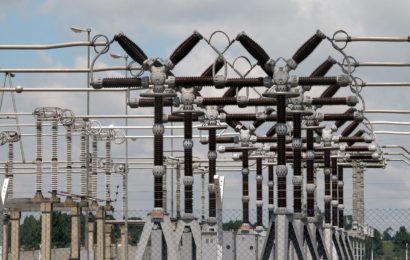
The Executive Vice Chairman, NCC, Prof. Umar Danbatta made the call on Friday in Lagos, during a retreat for the Senate Committee on Communications, organised by the commission.
Represented by the Head, Legislative and Government Relations, NCC, Mr Inatimi Spiff, Danbatta said that such cooperation would ensure that the sector was effectively regulated.
He said that he was delighted on how enthusiastic the committee members were about the growth and development of the telecommunications industry.
According to him, it is evident that NCC and the Senate share a common interest in overcoming the challenges of the industry, as well as a common aspiration towards progress for the benefit of Nigeria.
”Hence, this retreat gives us further opportunity to seek your cooperation in carrying out our mandate as the independent regulator of the telecommunications industry.
”We shall remain fair, firm and forthright always,” he said.
 Danbatta promised that the NCC would continue to manage the process of regulation of the telecommunications industry in the most efficient way and in the best interest of Nigeria.
Danbatta promised that the NCC would continue to manage the process of regulation of the telecommunications industry in the most efficient way and in the best interest of Nigeria.
”We will use this opportunity to share information about the delicate balance existing between the functions of the regulator and its many stakeholders, including the legislature,” he said.
Danbatta said that the stakeholders had diverse but very important interests, which the regulator must consider.
He said that in the course of achieving an effective regulation for the benefit of all and in creating an enabling environment for growth, issues and challenges are bound to arise.
In his keynote address, Prof. Cleopas Angaye, a former Director General of the National Information Technology Development Agency (NITDA) said that there was a positive correlation between telecommunication and socio-economic development of a nation.
Angaye spoke on the theme: ”Improving The Socio-Economic Development Of The Nation, Through Qualitative Telecommunication Services”.
He said that the Nigeria ICT policies recognised the central importance of reliable and qualitative access to telecommunication in the achievement of social and economic goals.
According to him, qualitative, affordable and easy access to telecommunication have been identified as key pillars to socio-economic development of a nation.
”There is the need to strengthen our regulatory instrument to accommodate the ever-changing technologies.
”This will protect the citizen from exploitation and ensure adequate revenue for the government,” he said.
The Deputy Chairman, Senate Committee on Communications, Sen. Ademola Adeleke, said that the retreat was very timely.
Adeleke said that it was an opportunity for the legislators and the regulator to come together and compare notes on ways to move the country forward.








